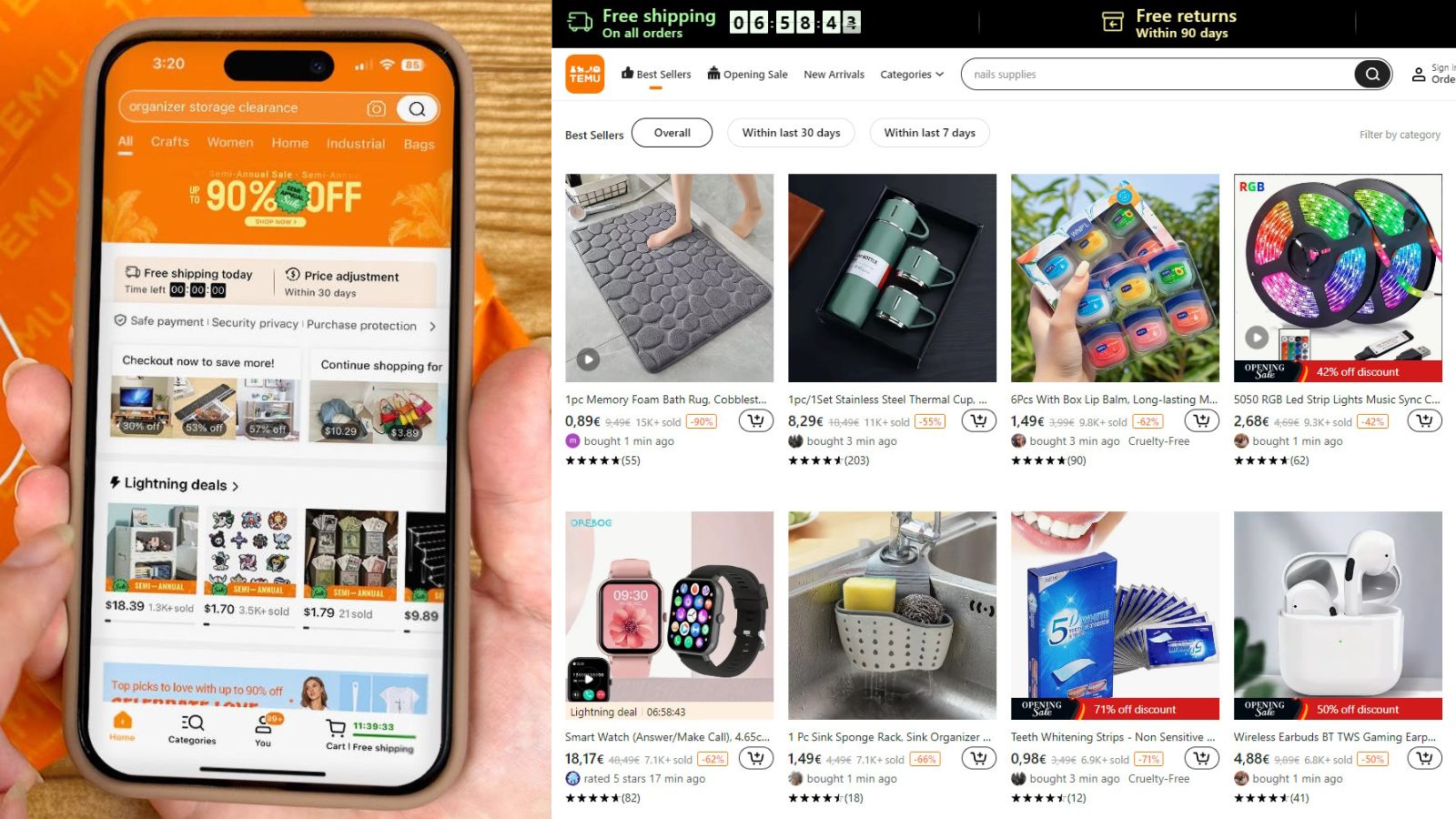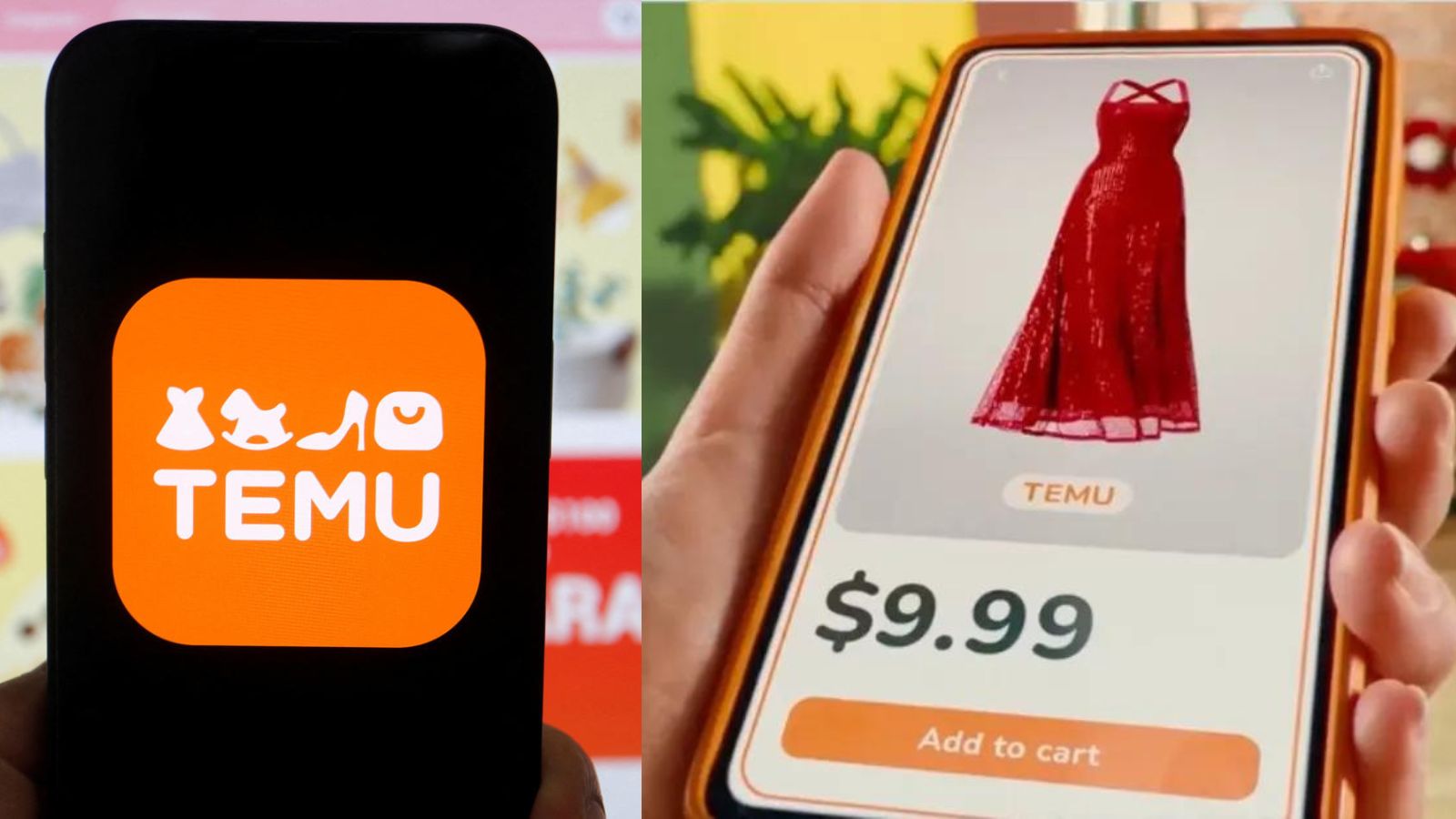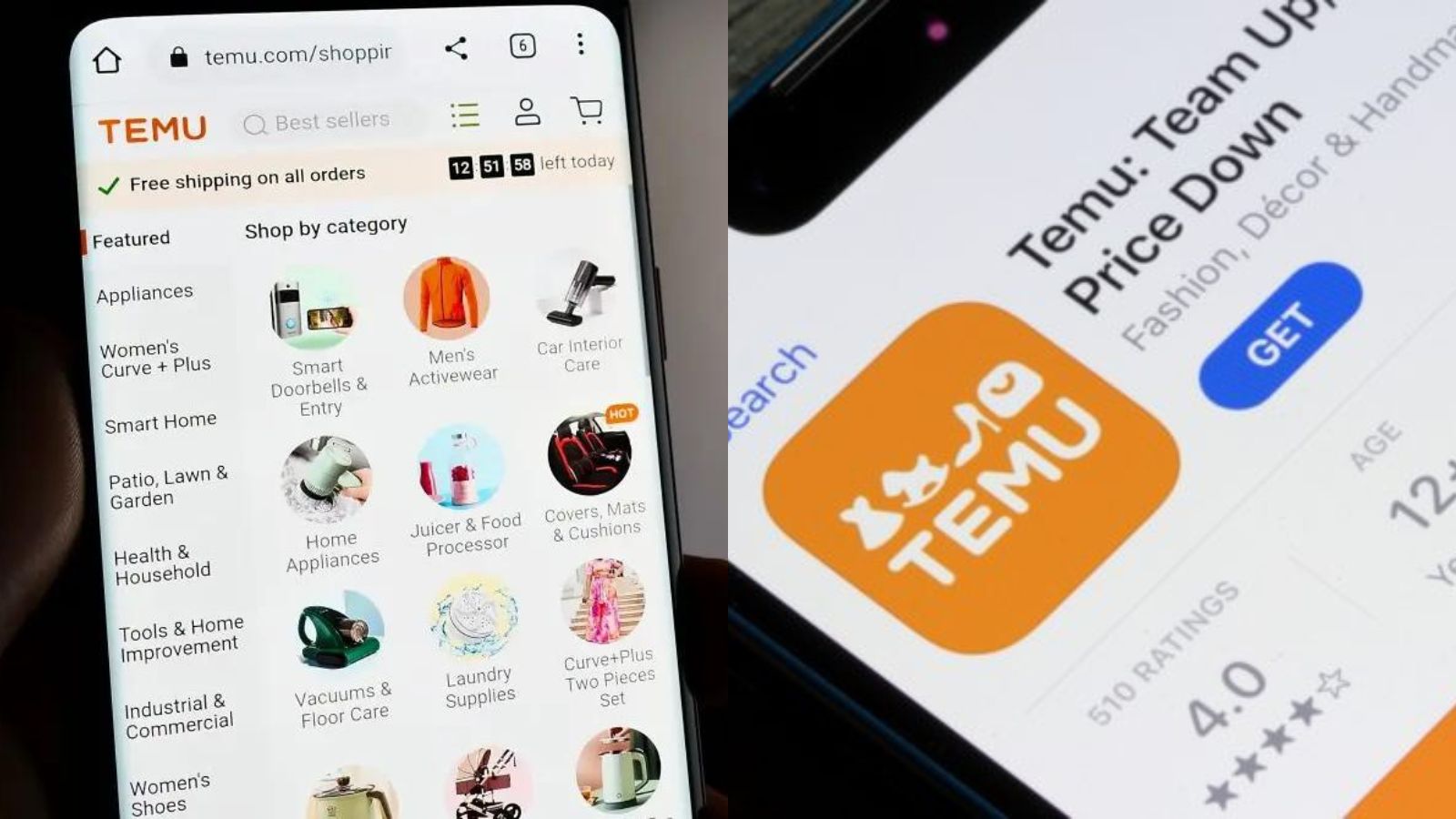The allure of Temu, with its flash deals, gamification tactics, and unbeatable prices, is proving irresistible to shoppers worldwide. For Lucy Clark, a resident of Manchester, her first encounter with the viral retail app Temu in 2023 felt akin to stepping into a virtual casino.
The interface dazzled with a spinning roulette wheel promising enticing cash coupon rewards, countdown timers urging swift action for free delivery, and lightning bolts heralding flash discount deals streaking across the screen.
Clark recalls, “I’d heard about Temu on TikTok, with people showing off their hauls and sharing promotional codes. Everyone I know has at least been on Temu [once] and had a look. I wasn’t searching for anything in particular.”
Confronted with an overwhelming array of dirt-cheap home gadgets, electronic devices, and novelty items, Clark opted to purchase some squeaky dog toys for Rickson, her mother’s French Bulldog.
Despite the extended two-week delivery window of Temu, considerably longer than Amazon’s standards, Clark remained unperturbed, drawing from her experience with Shein, where similar delays were commonplace.

“I could pay extra to get it expedited,” she notes, “but I’m never that desperate for the stuff I’m ordering.”
Temu’s eclectic catalogue of products caters to diverse interests, offering everything from beard-trimming bibs to mini toilet golf sets, compact printers, avocado slicers, and even stylish hoodies for car gear sticks.
Acknowledging the variability in quality, Clark views it as part and parcel of the shopping experience.
“You’re either going to get something really good and an absolute bargain. Or you get something that’s a bit naff, but won’t actually return it, because it’s less than £10 so it’s not worth your time,” she explains.
Experts affirm that Temu’s pricing strategy and product promotion tactics are calculated, effectively leveraging consumer psychology to maintain engagement. The incorporation of gamification elements, akin to those found in video games, incentivizes continued shopping, offering bonuses and coupons akin to gaming rewards.
Brands globally are now adopting similar strategies, incorporating features like spin-to-win games, quizzes, and elaborate referral systems into their platforms. However, few execute these tactics as prominently as Temu, which endeavors to stimulate consumer engagement through a multifaceted approach.
Neil Saunders, a retail analyst, likens Temu’s appeal to sugar, eliciting dopamine hits with its immersive experience and budget-friendly prices. Mark Griffiths, a professor of behavioural addiction, underscores Temu’s adept fusion of shopping and gamification, noting how the retailer capitalizes on perceived urgency through timers and countdowns.

Temu’s reliance on social proof and animated elements further enhances its appeal, fostering a sense of trust and popularity among consumers.
Despite concerns about addiction or overspending, experts caution against overstating Temu’s impact, attributing its allure to effective marketing rather than clinical addiction.
Nevertheless, Temu’s rapid growth and ultra-low prices pose challenges for smaller brands attempting to compete. Elizabeth Clark, CEO at Dream AI ltd, highlights Temu’s formidable business model, premised on operating at a loss to establish market dominance.
While Temu’s ascent seems unstoppable, regulatory scrutiny and ethical concerns loom large. Allegations of data breaches, exploitation of trade loopholes, and potential ties to forced labor underscore the darker side of its success.
As Temu continues its expansion, the balance between irresistible marketing and consumer skepticism remains a dynamic challenge.
For now, Temu retains its appeal to consumers like Lucy Clark, who appreciate its affordability despite occasional quality concerns. As she sums it up, “They’re only £2 each.”







Leave a Reply